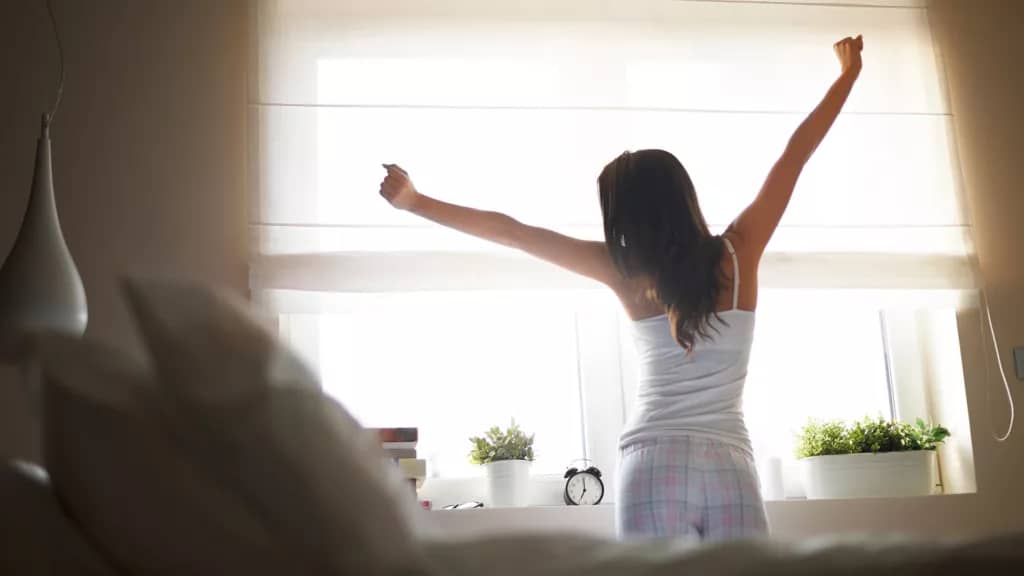Sleep Wellness: How Acupuncture and TCM Can Help with Insomnia
Insomnia is a common sleep disorder characterized by difficulty falling asleep or staying asleep, or waking up too early and not being able to fall back asleep. This can lead to poor quality sleep, daytime fatigue, irritability, and difficulty concentrating. Insomnia can be acute, lasting a few days or weeks, or chronic, lasting for months or even years. It can be caused by a variety of factors, including stress, anxiety, depression, certain medications or medical conditions, and poor sleep habits. If left untreated, insomnia can lead to a range of physical and mental health issues.
Physical health issues
Insomnia can cause physical health issues in a number of ways. For one, lack of sleep can lead to a weakened immune system, making individuals more susceptible to infections and illnesses. Chronic insomnia has also been linked to an increased risk of developing conditions such as high blood pressure, heart disease, and diabetes.
Insomnia can also contribute to weight gain, as lack of sleep affects the hormones that regulate appetite and metabolism. This can lead to an increased risk of obesity and related health problems.
In addition, insomnia can also cause daytime fatigue, which can increase the risk of accidents and injuries. It can also lead to decreased productivity and difficulty with daily activities, which can impact overall quality of life.
Overall, the physical health consequences of untreated insomnia can be significant and long-lasting, making it important to seek treatment and address the underlying causes of sleep disturbances
Mental health issues
Insomnia can cause or worsen mental health issues by disrupting the natural balance of brain chemicals that regulate mood, emotions, and behavior. Lack of sleep can lead to an increase in stress hormones such as cortisol, which can contribute to anxiety, depression, and irritability. It can also lead to a decrease in the production of neurotransmitters such as serotonin and dopamine, which are essential for maintaining healthy mood and emotional balance.
Chronic insomnia has been linked to a higher risk of developing mental health disorders such as anxiety disorders, depression, bipolar disorder, and schizophrenia. Sleep deprivation can also exacerbate symptoms of existing mental health conditions, making it harder for individuals to cope with their symptoms and manage their daily lives.
Conventional treatment
Conventional insomnia treatment options include prescription medications, such as sedatives and hypnotics, cognitive-behavioral therapy (CBT), and sleep hygiene practices. Sedatives and hypnotics can have side effects, such as drowsiness, dizziness, and impaired coordination, and may also lead to dependence and withdrawal symptoms. CBT can be effective in the long-term, but may take several weeks to show results. Sleep hygiene practices, such as establishing a regular sleep schedule and creating a relaxing sleep environment, can also be helpful, but may not be effective for all individuals. It’s important to discuss any potential side effects and risks with a healthcare provider before starting any treatment for insomnia.
Ancient Chinese saying
In Traditional Chinese Medicine, the concept of the “body clock” or “circadian rhythm” is known as the 子午流注 (Zi Wu Liu Zhu) system. This system divides the day into 12 two-hour intervals, each of which is associated with one of the 12 main meridians in the body. The gallbladder meridian is most active during the hours of 11pm to 1am, while the liver meridian is most active during the hours of 1am to 3am.
According to this system, it is recommended to be asleep during the hours when the gallbladder meridian is most active, which is why the ideal time for sleep in TCM is often said to be between 11pm and 7am. This is because during this time, the body is believed to be in a state of restoration and rejuvenation, allowing for optimal physical and mental health.
TCM Acupuncture
Traditional Chinese Medicine (TCM) views insomnia as an imbalance in the body’s energy or Qi, particularly in the organs related to sleep such as the heart, liver, and spleen. Acupuncture works by targeting specific acupuncture points on the body to stimulate the flow of Qi and restore balance to these organs.

Acupuncture may also increase the production of endorphins, which are natural painkillers and mood stabilizers that can promote relaxation and reduce anxiety. In addition, acupuncture may help regulate the release of certain hormones, such as melatonin and cortisol, which can impact sleep patterns.
Research has also shown that acupuncture may stimulate the production of gamma-aminobutyric acid (GABA), a neurotransmitter that helps to calm the nervous system and promote relaxation. Low levels of GABA have been linked to insomnia and other sleep disorders.
Overall, acupuncture aims to address the underlying imbalances in the body that contribute to insomnia, promote relaxation and reduce anxiety, and regulate the body’s natural sleep-wake cycles.
Acupuncture points
There are several acupuncture points that are commonly used to treat insomnia, including:
- Anmian: Located behind the ear, this point is often used to calm the mind and promote relaxation.
- Shenmen: Located on the wrist, this point is believed to help reduce anxiety and promote relaxation.
- Sishencong: This point is located on the top of the head and is believed to help calm the mind and improve sleep quality.
- Heart 7 (HT7): This point is located on the inside of the wrist and is believed to help calm the mind, reduce anxiety, and promote relaxation.
- Pericardium 6 (PC6): This point is located on the inside of the wrist and is believed to help reduce stress and promote relaxation.
- Kidney 3 (KD3): This point is located on the inside of the ankle and is believed to help calm the mind and promote relaxation.
- Bladder 62 (BL62): Located on the outside of the ankle, this point is believed to help improve sleep quality and reduce anxiety.
These points may be used individually or in combination based on the individual’s specific symptoms and diagnosis.
Chinese herbal Medicine
There are several Chinese herbal formulas that can be used for insomnia, and the specific formula used may depend on the individual’s symptoms and TCM diagnosis. Some common formulas include:
- Suan Zao Ren Tang: This formula includes sour jujube seed, which is believed to calm the mind and promote relaxation.
- Gui Pi Tang: This formula includes ginseng, astragalus, and other herbs to tonify the Qi (vital energy) and blood, which can help alleviate insomnia caused by stress and anxiety.
- Tian Wang Bu Xin Dan: This formula includes Chinese angelica root and other herbs to nourish the Yin (moisture) and calm the mind, which can help with insomnia caused by imbalances in the heart and liver.
- Bu Nao Wan: This formula includes polygonum multiflorum, which is believed to tonify the liver and kidneys and nourish the blood, helping with insomnia caused by deficiency.
- Chai Hu Jia Long Gu Mu Li Tang: This formula includes bupleurum, which is believed to regulate the liver and alleviate depression and anxiety, as well as dragon bone and oyster shell, which can calm the mind and promote sleep.
It’s important to note that Chinese herbal medicine should only be prescribed by a qualified TCM practitioner, as the specific formula used may depend on the individual’s unique diagnosis and constitution.
Huatuo Clinic and sleep wellness
Huatuo Clinic offers a holistic approach to sleep wellness, which includes both acupuncture and Chinese herbal medicine. Our experienced practitioners work with each patient to identify the underlying causes of their insomnia and develop an individualized treatment plan to address their unique needs.
Acupuncture can help regulate the body’s natural sleep-wake cycle by stimulating specific points on the body that promote relaxation and reduce stress. The use of Chinese herbal medicine can also help to balance the body’s energy and promote restful sleep.
At Huatuo Clinic, we also provide lifestyle and dietary recommendations that can contribute to a better quality of sleep. We understand the impact that poor sleep can have on overall health and wellbeing, and we strive to provide comprehensive care that addresses all aspects of sleep wellness.
If you are struggling with insomnia or other sleep-related issues, please contact us to schedule a consultation and learn more about our approach to sleep wellness.





